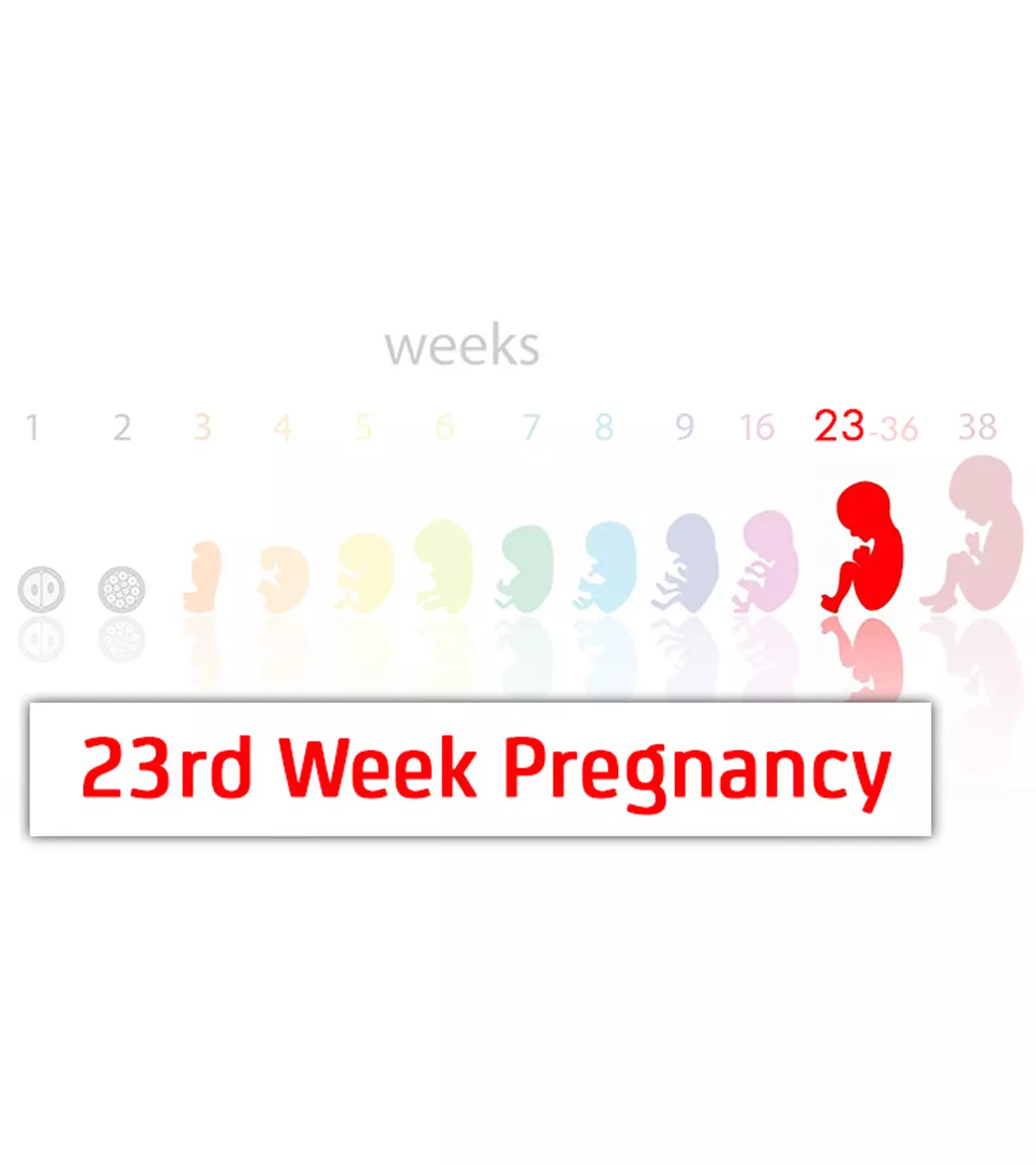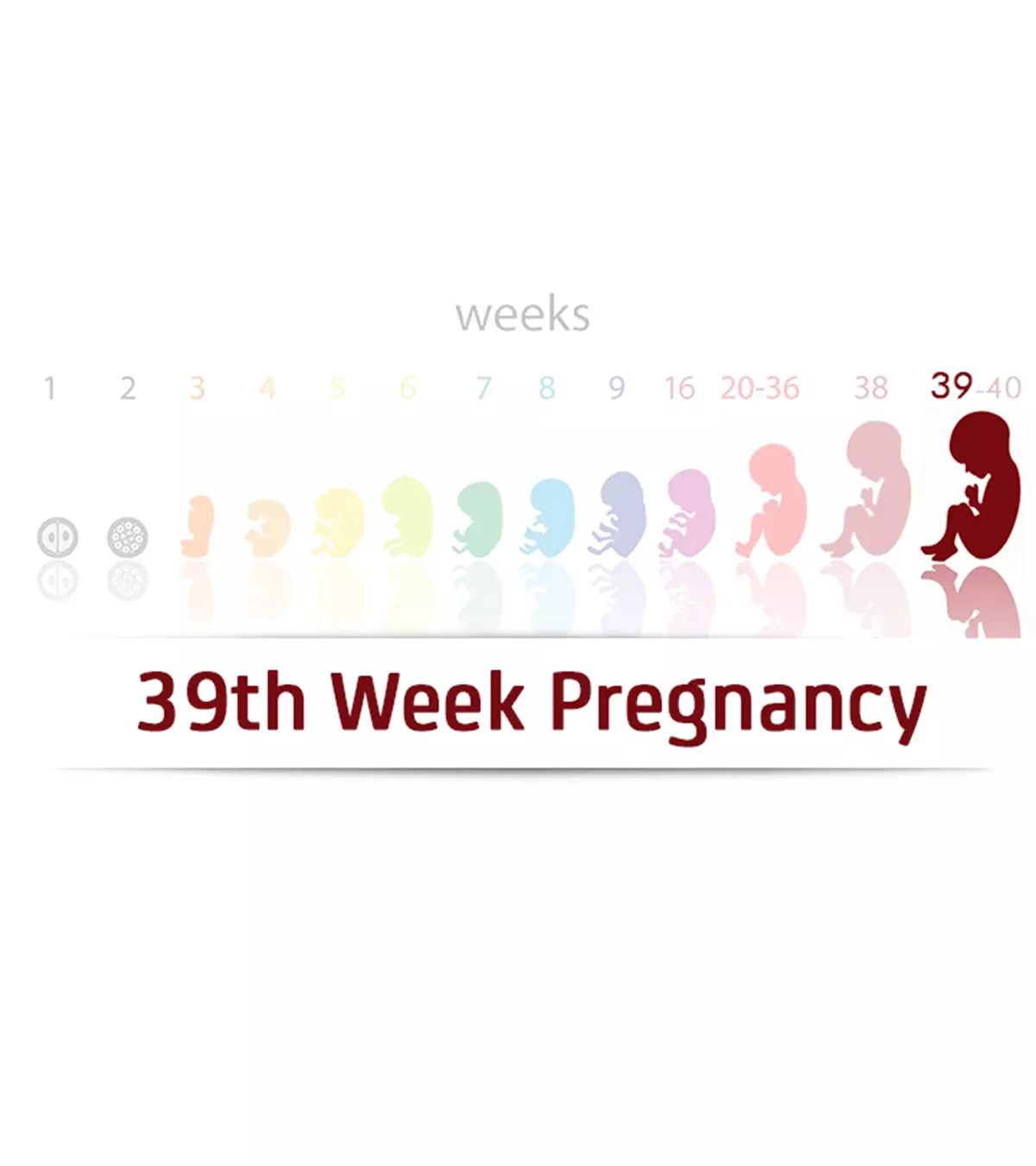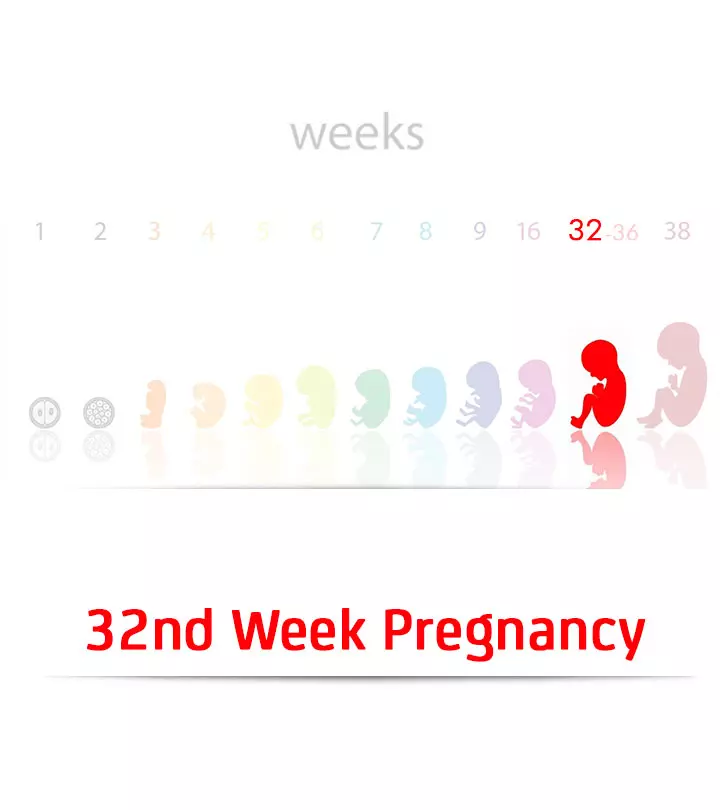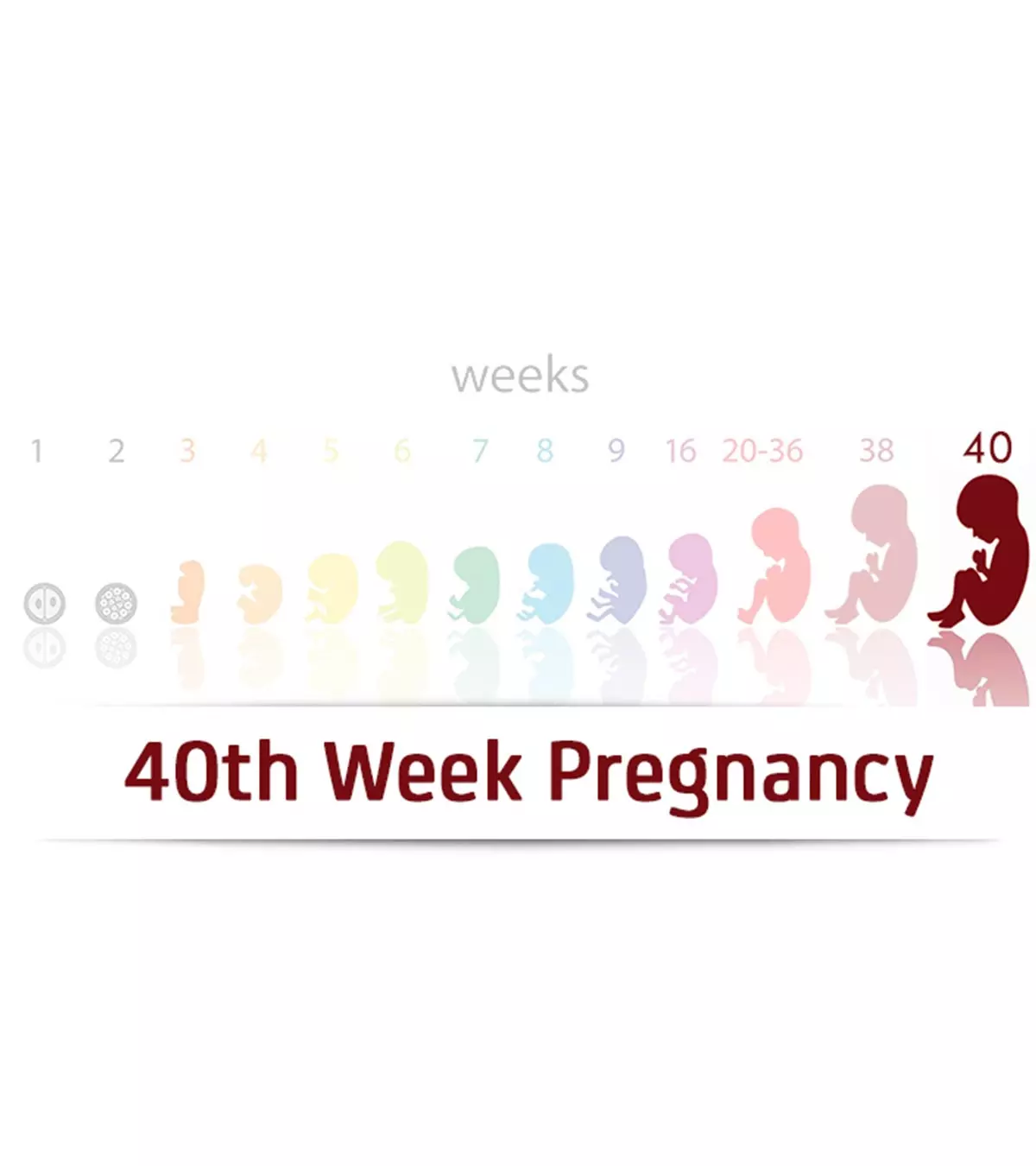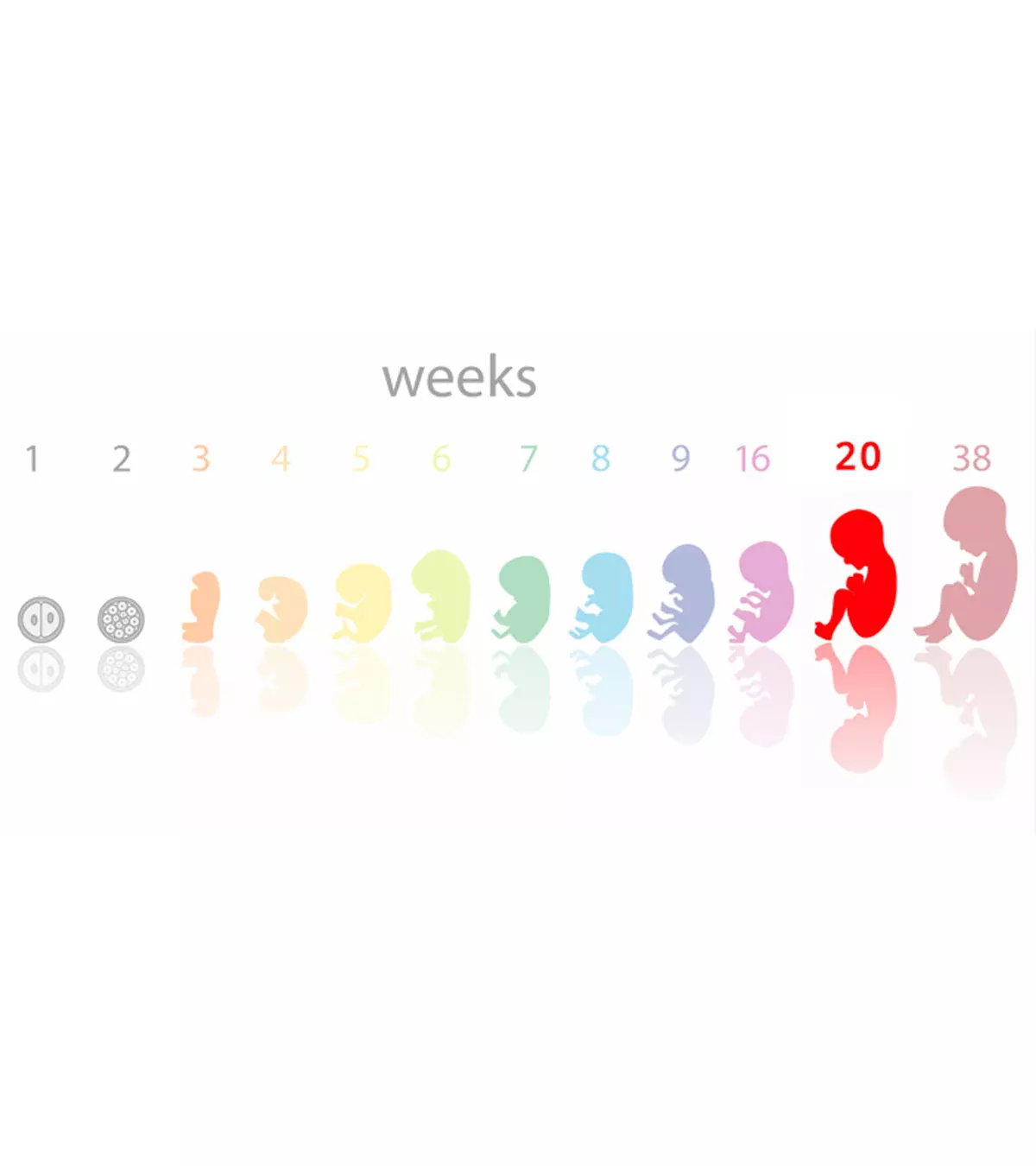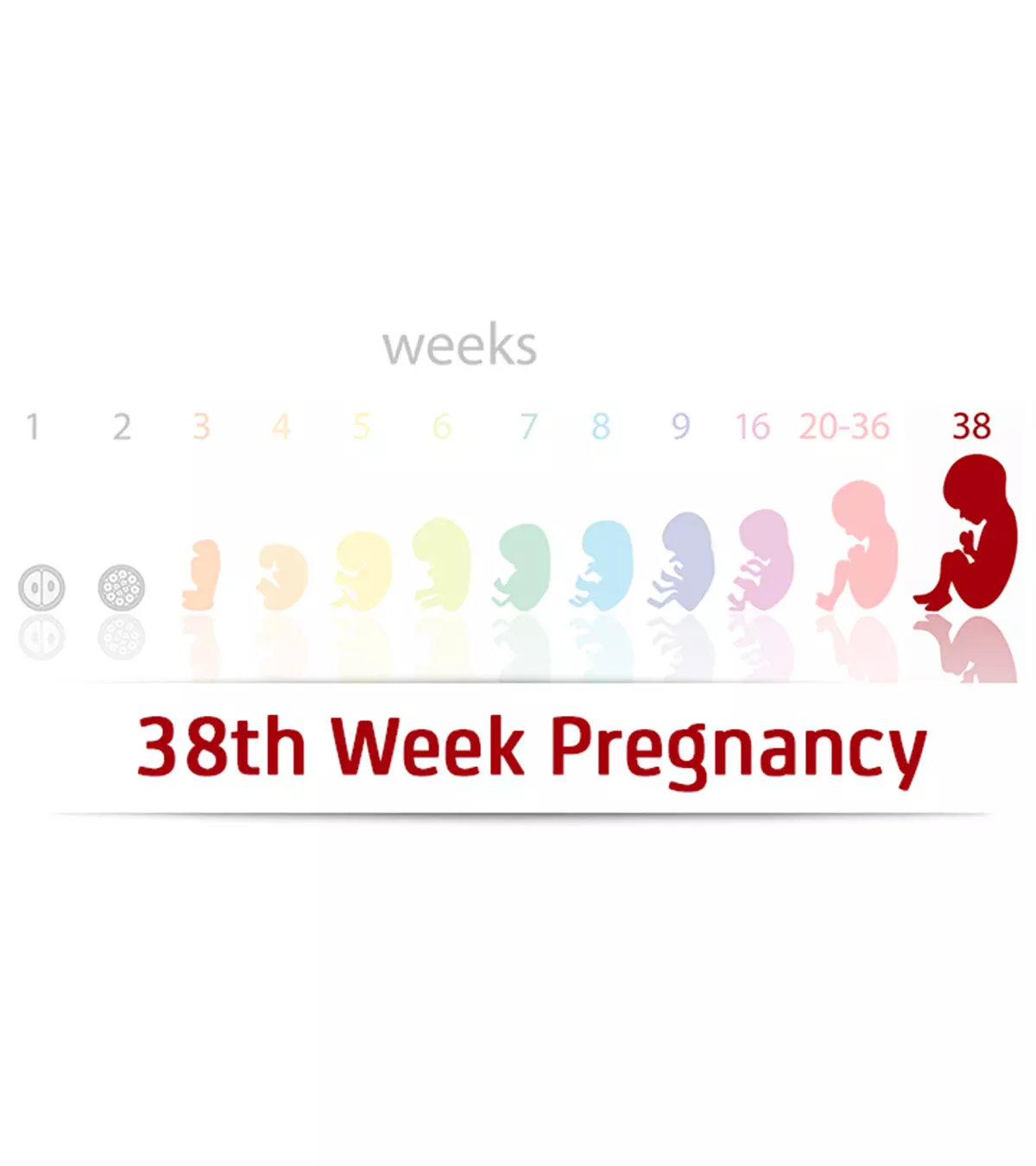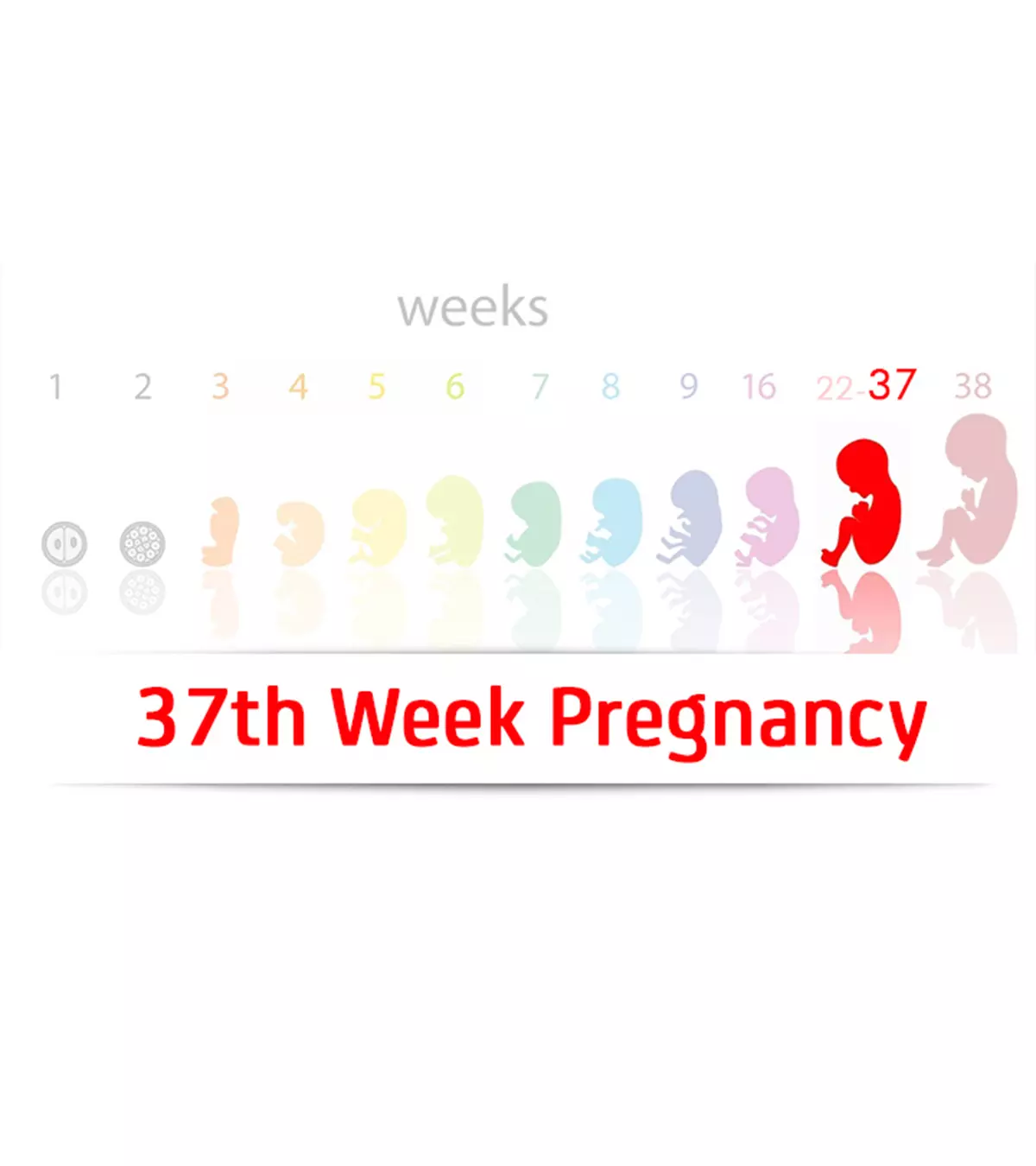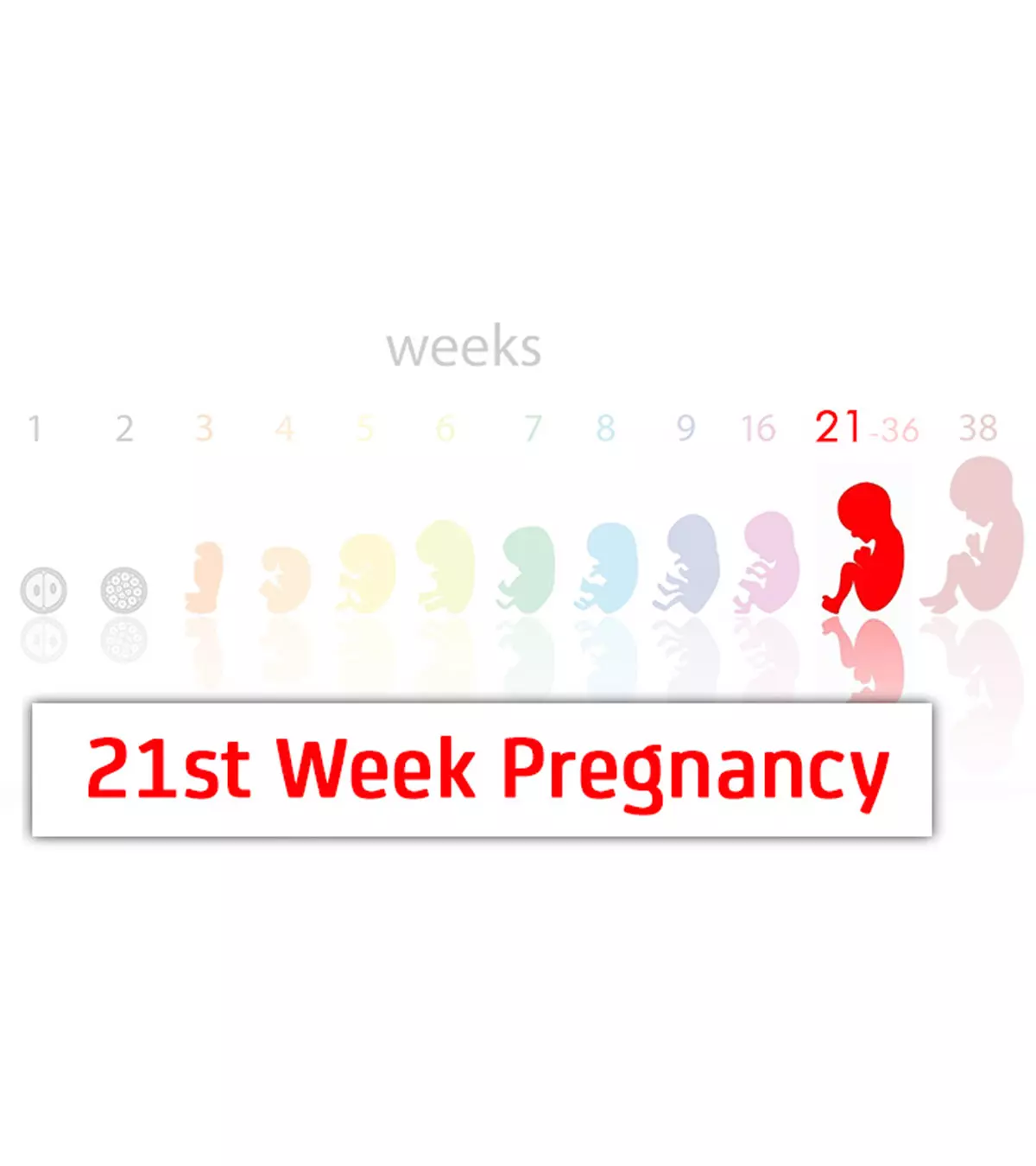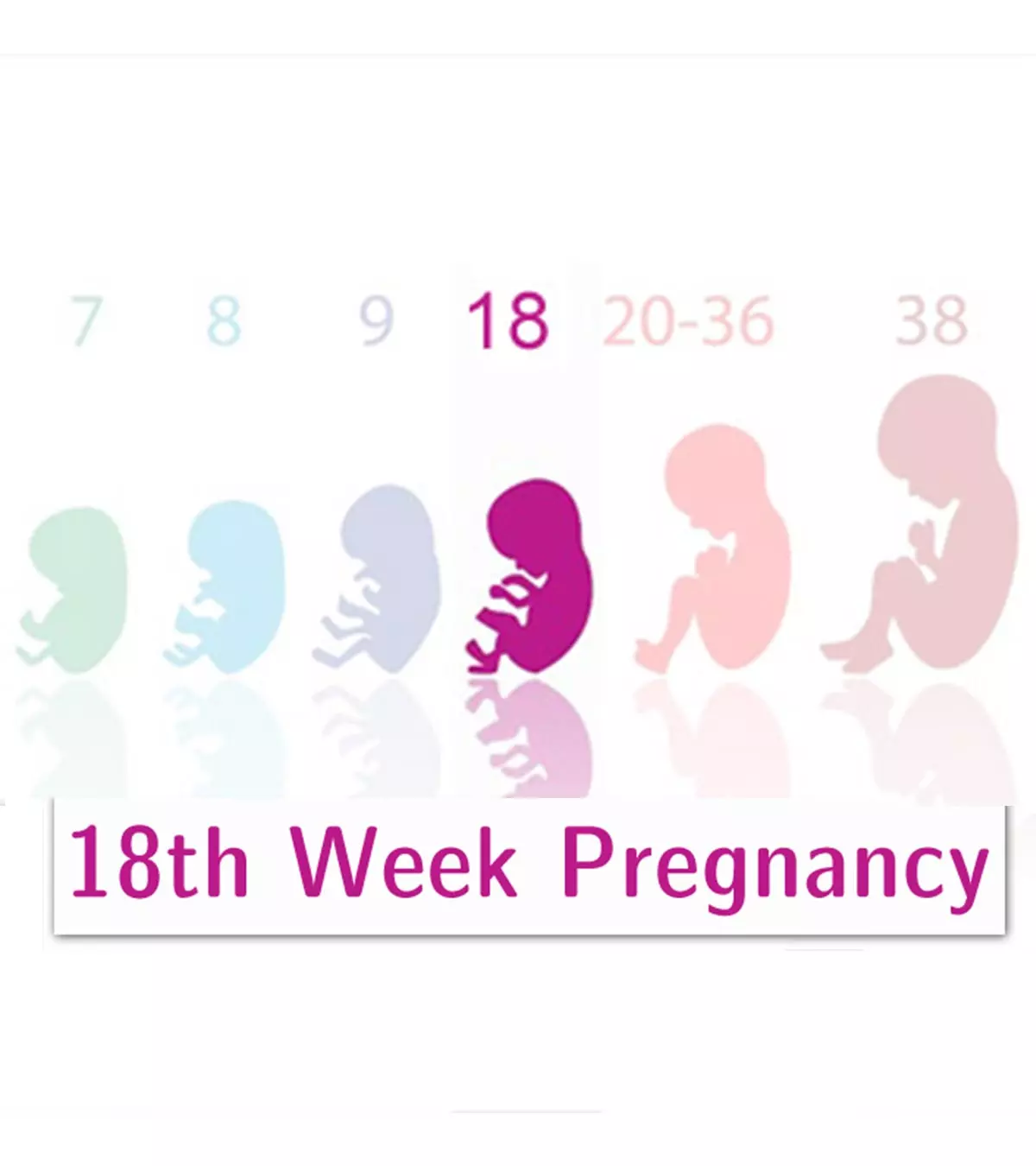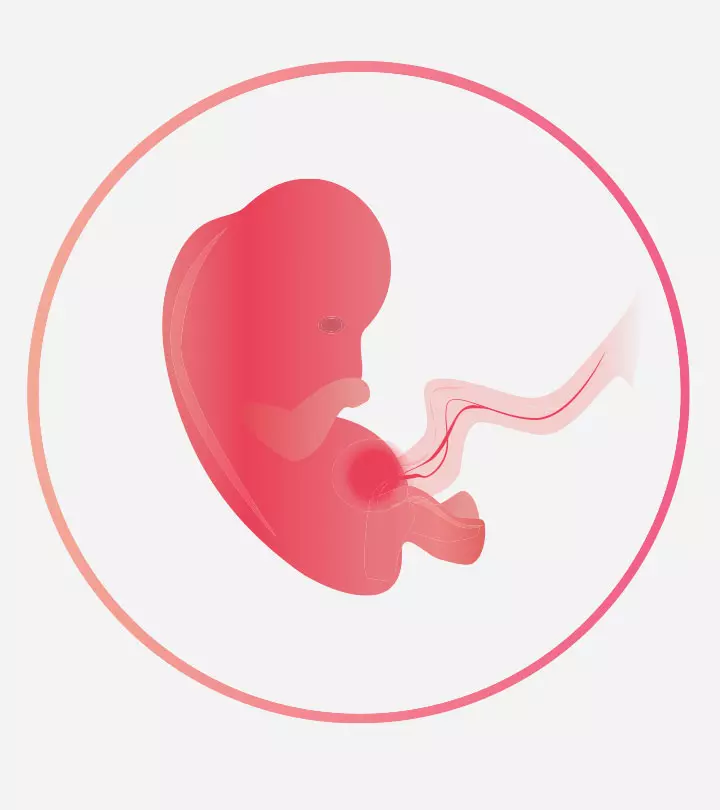
Image: Shutterstock
By the 6th week of pregnancy, most of the structures of your baby would have been developed or in the process of developing. Your doctor may be able to give you a visual of it through an ultrasound. Even though it is the early phase of your pregnancy, you may undergo a series of hormonal changes during this period.

In this post, we help you understand everything about week six, including the changes in your body and the developments in the baby. We also give you a few tips on ensuring a smooth pregnancy.
Key Pointers
- During the sixth week of pregnancy, major organs such as the brain, heart, and gastrointestinal organs are still developing.
- Ultrasound is first performed during this week.
- The sixth week comes bearing exciting news as parents might get to listen to their baby’s heartbeat for the first time.
- Remember to eat balanced meals and visit your doctor this week for a healthy pregnancy.
How Many Months Pregnant Are You At Six Weeks?
During the sixth week, you are in your second month of pregnancy.
The second month is a part of the first trimester. The first trimester is between conception to 13 weeks (1).
How Big Is Your Baby At Six Weeks?
The fetus during the sixth week is around ¼ inch long (2). It is visible through the ultrasound scan when the doctor can evaluate the fetal size.
What Is The Baby Development At Six Weeks?
At this stage, the baby continues to develop at a faster rate. Most of the organs have begun to form by now.
1. Brain development
By the sixth week of pregnancy, the fetus develops the cerebral cortex, a part of the brain. The neurons also start to grow and form connections known as synapses. These connections enable communication between the neurons and, at a later stage, allow the fetus to make movements (3).
2. Heart development
The heart develops between the third and the sixth week. During the sixth week, cardiac activity develops, and you can hear the fetal heart sound during an ultrasound (4).
3. Other notable developments
Some other developing features of the fetus in the sixth week of pregnancy include (2) (3):
- The ears begin to take shape, and the ear opening is visible.
- The salivary glands form in the mouth.
- The diaphragm, one of the main muscles that help to breathe, is now formed.
- Eyes start to develop.
- The limb buds begin to develop. Fingers form at this stage.
- The endocrine systemiA system consisting of glands that secrete hormones into the blood, which are responsible for several vital functions in the body. continues to develop this week. The parathyroid hormoneiA hormone secreted by parathyroid glands and is involved in the regulation of calcium levels in the blood. starts to secrete this week, which controls the calcium levels in the fetus’ blood.
- The kidneys start to function, and the stomach also produces digestive juices.
 Quick fact
Quick factWhat Are The Symptoms During The Sixth Week Of Pregnancy?
Besides nausea and discomfort, there are some other symptoms that you may start to experience in week six of pregnancy.
- Morning sickness: Most pregnant women experience nausea and vomiting during the early weeks of pregnancy. These symptoms peak at week six and decline after week 18 (5).
- Indigestion and heartburn: Changes in the body’s hormonal levels and the pressure of the growing baby on the stomach could be responsible for indigestion and heartburn during pregnancy (6).

- Fatigue: The baby’s rapid growth leads to changes in your body, which can leave you tired even after resting.
- Other symptoms: Bloating, mild headache, mood swings, and frequent urination are some other symptoms that pregnant women might experience at week six.
Noémie Sato, a mother to a daughter, from Amsterdam, shares her experiences about her pregnancy journey in the first trimester. She writes, “From six weeks of pregnancy, fatigue was added, and nausea and weight on the stomach never left.” She further says, “Only the chickpea crisps didn’t make me sick and even stopped nausea. So I ate it almost all day long. Fortunately, these crisps are full of proteins, much less caloric than conventional crisps, and without any additives (i).”
Manisha Sandhu, a mother and a blogger, from New York City, also shares about her symptoms during six weeks of pregnancy. She describes, “I wake up queasy in the mornings, feeling like I might hurl if encouraged enough by a smell or quick motion…This morning, I held onto the subway bars with sweat pooling above my upper lip, weak in my legs, already exhausted (ii).”
 Quick fact
Quick factWhat Body Changes Occur During The Sixth Week?
You are likely to notice the following body changes during the sixth week of pregnancy (7).
- Changes in breasts, including breast soreness
- Darkening of skin on the face and brown skin patches
- Increased hair thickness

- Changes in taste, including a metallic taste in the mouth
- You may also develop a change in the sense of smell and food likes and dislikes
What Is Checked During The Six-Week Ultrasound?
The first scan of the first trimester is ideally scheduled in the sixth week. The ultrasound will typically last between 20 and 30 minutes and may involve abdominal or transvaginal scanning. This ultrasound helps with the early assessment of the fetus and detection of any abnormalities.
- Fetal heart rate: The ultrasound helps to monitor the fetal heart by diagnosing the number of beats per minute. During the sixth week, the average fetal heartbeat is 120 beats per minute (8)
- Gestational age: The first-trimester ultrasound also helps to know the fetal pole (mass of cells) and crown-rump length (head to butt) of the fetus. These figures, in turn, help determine the gestational age.
- Twins or multiples: The sixth-week ultrasound also helps detect if it is a single fetus, twins, or multiples (9).

- Location of the pregnancy: Normal or abnormal positioning of the fetus in the uterus.
Regular prenatal check-ups are important for tracking your health and that of the baby. Talk to your healthcare provider about your symptoms, upcoming ultrasound appointments, and the use of prenatal vitamins.
Can Twin Development Be Known At Week Six?
During an ultrasound at week six, you will not only know if you’re carrying twins, but you might also know if the twins would be identical
. You will have identical twins if the ultrasound shows one placentaiA temporary organ that connects the baby to the uterus and provides oxygen and nutrients to it. and two amniotic sacsiThe thin-walled fluid-filled sac in the uterus where the embryo grows and eventually forms the fetus. (10). The development of the twins would be similar to that of a single baby until the third trimester (11).
Are There Tips To Remember In Week Six Of Pregnancy?
- Doctor’s visit: If you have missed the doctor’s appointment in the fifth week, now is the time to do it. Get your blood pressure, heart rate, and weight checked. If you’ve had a check-up the previous week, you can visit for the first-trimester ultrasound this week.
- Pregnancy diet plan: Your obstetrician may help you in creating a pregnancy diet plan based on your health. The focus should be on a healthier menu, even if you are having cravings for junk or sugary foods. Also, take your prenatal vitamins and drink enough water to keep constipation problems at bay.

- Light exercise: Even though you feel tired pretty soon, it is essential that you engage in some light exercises such as walking. This will help you to stay active and keep your body fit for more changes. Always ask your doctor about it.
- Stress management: To reduce stress and anxiety during early pregnancy, you may consider gentle yoga and mindfulness activities. Get enough rest, and seek support when needed.
- Small meals and naps: To deal with nausea, vomiting, and tiredness, you must eat your meals in small quantities and take frequent naps. These changes in your lifestyle will help you deal better with early pregnancy symptoms.
What To Avoid In Week Six Of Pregnancy?
During the first trimester, the chances of miscarriage are the highest (12). Below is a list of things you must avoid during this time of pregnancy to ensure your and your unborn baby’s safety (13) (14) (15):
- Alcohol and nicotine (smoking)
- Abdominal massage
- Fake tanning, including spray tans, tanning pills, and injections (but you can use fake tan creams and lotions)
- Sauna and jacuzzi
- Cleaning litter box
- Excessive caffeine intake
- Raw or undercooked meat, fish, and eggs
- Unpasteurized dairy products
- Unwashed vegetables and fruits
What Is The Pregnancy Checklist For Week Six Of Pregnancy?
- Do not skip prenatal care and attend the ultrasound session.
- If you wish to reveal your pregnancy to your friends and relatives, prepare to break the happy news.
- Try home remedies certified by your doctor to alleviate morning sickness.
- Check for any concerning signs and report them to your doctor for prompt medical attention.
When To See A Doctor?

Consult a doctor if you notice any of the following signs (16):
- Vaginal bleeding or discharge
- Fever and chills
- Headache
- Trouble breathing
- Pain while urinating
- Dizziness
- Weight loss
Frequently Asked Questions
1. How does a six-week pregnant belly feel?
During the sixth week of pregnancy, you might be unable to spot the pregnant belly. Although you cannot see the baby bump visually, you might experience nausea, bloating, or cramping.
2. Can I lie on my stomach at six weeks pregnant?
It is safe to lie on the stomach during the early weeks. During the sixth week of pregnancy, you might not have a bump, so sleeping on your stomach could not be uncomfortable. However, as the pregnancy progresses, the growing uterus can make it difficult to sleep on your stomach (16).
3. Can I have a miscarriage at week six?
The first trimester poses a high risk of miscarriage during pregnancy. As per a study published in the National Library of Medicine, the risk of miscarriages may drop by 10% after the sixth week of pregnancy (12) (17).
4. Why are miscarriages so common at six weeks?
There could be an increased risk of miscarriage during the first trimester due to chromosomal abnormalities or ectopic pregnanciesiA complication in pregnancy where the fertilized egg grows outside the uterus more often in the fallopian tube. . Improper placenta development around the initial weeks may also increase the risk of a miscarriage (18).
5. Why is my belly so bloated at six weeks pregnant?
Hormonal fluctuations could cause bloating during the sixth week of pregnancy. Pregnant women at this stage may suffer from constipation, contributing to bloating.
The sixth week of pregnancy is when the fetus’ most body structures begin to develop or are in development. Fetal development rate is faster, and crucial parts of the brain such as the cerebral cortex and neuronal connections begin to develop in the sixth week of gestation. Some women may experience pregnancy symptoms, and there won’t be any changes in belly size. A six-week ultrasound examination helps determine fetal heart rate, location of the pregnancy, gestational age, and a singleton or multiple pregnancies, letting you be better prepared with what to expect with your pregnancy.
Infographic: Things To Remember At The Sixth Week Of Pregnancy
At six weeks of pregnancy, you’re still in your early phase of pregnancy and need to be very careful. Some women even come to know about their pregnancy at this stage. The below infographic explains various things you should be aware of at this stage to keep your baby safe and have a healthy pregnancy.
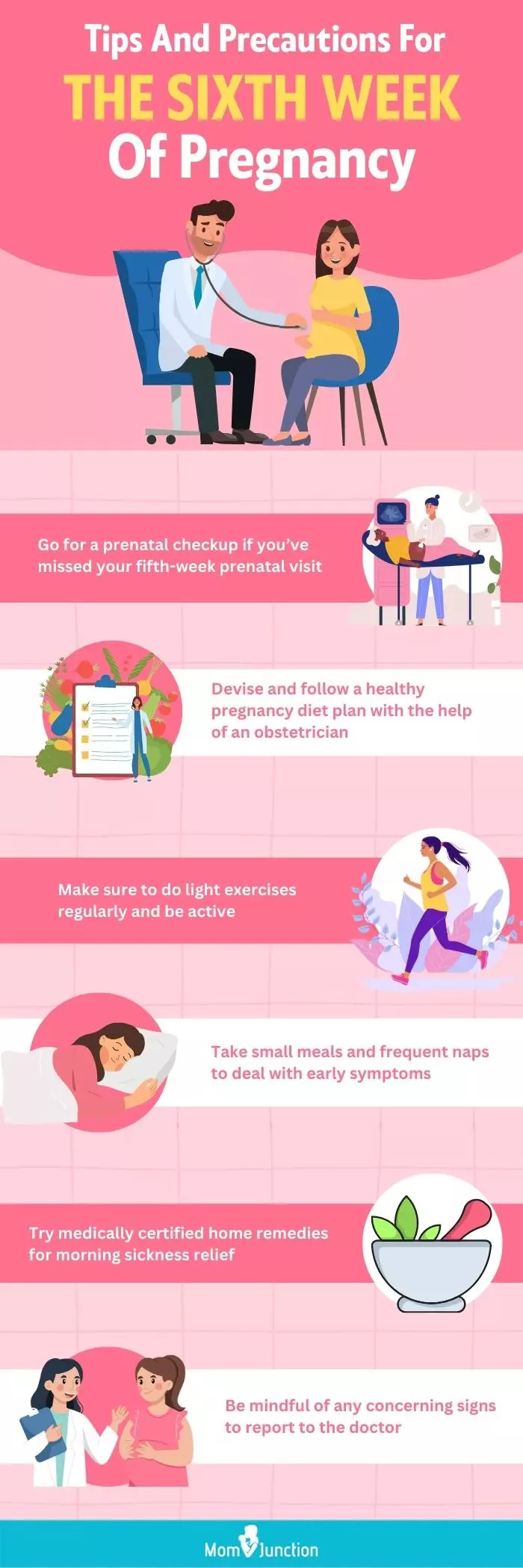
Illustration: Momjunction Design Team
Illustration: 6 Weeks Pregnant: Symptoms Baby Development And Tips
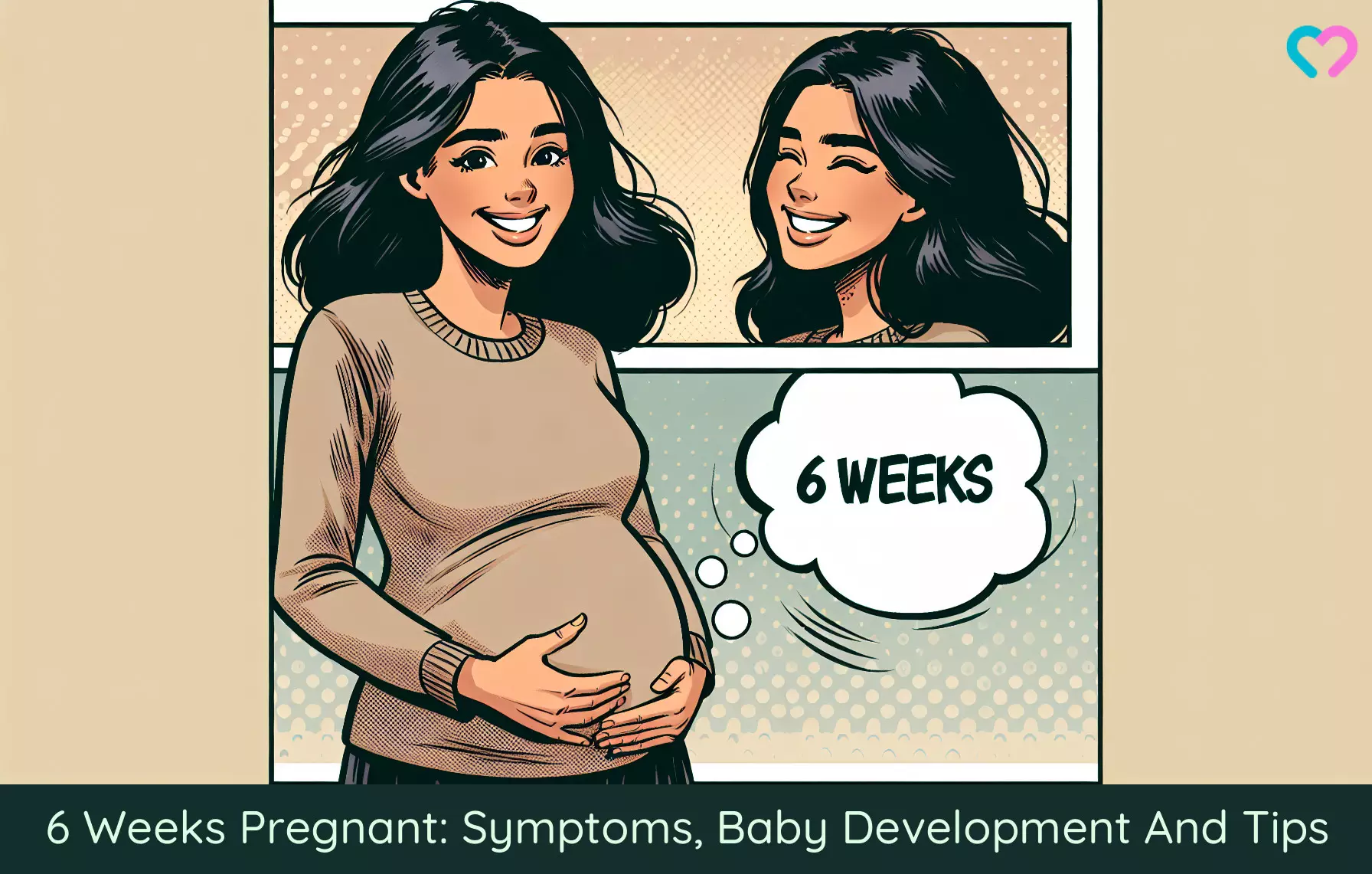
Image: Dall·E/MomJunction Design Team
Pregnancy is an exciting journey for a mother. Check out this video to understand the amazing world of a 6-week pregnancy sonogram. See the miracle of life unfold before your eyes!
Personal Experience: Source
MomJunction articles include first-hand experiences to provide you with better insights through real-life narratives. Here are the sources of personal accounts referenced in this article.
1. My First Trimester Of Pregnancy: Joy, Worry, Extreme Tiredness And Blues;https://www.noemiememories.com/english-blog/my-first-trimester-pregnancy-joy-tiredness-worry-blues
2. Pregnancy Blog: Six Weeks In;
https://medium.com/@munndiaries/pregnancy-blog-six-weeks-in-d7a054d5e81
References
- Pregnancy: The Three Trimesters.
https://www.ucsfhealth.org/conditions/pregnancy - Fetal Growth And Development.
https://doh.sd.gov/media/bnemplje/fetal.pdf - Prenatal Form and Function – The Making of an Earth Suit.
https://www.ehd.org/dev_article_unit6.php - Oriana Valenti et al.; Fetal cardiac function during the first trimester of pregnancy (2011).
https://www.ncbi.nlm.nih.gov/pmc/articles/PMC3279166/ - Morning sickness is Mother Nature’s way of protecting mothers and their unborn Cornell biologists find.
https://news.cornell.edu/stories/2000/05/morning-sickness-protects-mothers-and-their-unborn - Indigestion and Heartburn in Pregnancy.
https://www.nhs.uk/pregnancy/related-conditions/common-symptoms/indigestion-and-heartburn/ - Week-by-week guide to pregnancy.
https://www.nhs.uk/start-for-life/pregnancy/week-by-week-guide-to-pregnancy/1st-trimester/week-6/ - Fetal Heart Rate In The First and Second Trimester.
https://radiopaedia.org/articles/fetal-heart-rate-in-the-first-and-second-trimester - G. M. Graham III; Ultrasound Evaluation of Pregnancy in the First Trimester.
https://www.semanticscholar.org/paper/Ultrasound-Evaluation-of-Pregnancy-in-the-First-Graham/87d6527623f0bf2b3ed0eea8bf5e32c001f0cf7c?p2df - Twin Pregnancy; Answers From An Expert.
https://www.hopkinsmedicine.org/health/conditions-and-diseases/staying-healthy-during-pregnancy/twin-pregnancy-answers-from-maternal-fetal-medicine-specialist - Liran Hiersch et al; Differences In Fetal Growth Patterns Between Twins And Singletons.
https://pubmed.ncbi.nlm.nih.gov/30501543/ - Miscarriage Statistics.
https://www.tommys.org/baby-loss-support/miscarriage-information-and-support/miscarriage-statistics - Things to avoid during pregnancy; Healthdirect Australia
https://www.pregnancybirthbaby.org.au/things-to-avoid-during-pregnancy - Foods to avoid when pregnant; Healthdirect Australia
https://www.pregnancybirthbaby.org.au/foods-to-avoid-when-pregnant - Do’s And Don’ts During The First Trimester Of Pregnancy; Sanford Health
https://news.sanfordhealth.org/womens/dos-and-donts-during-first-trimester-pregnancy/ - Warning signs during pregnancy.
https://www.pregnancybirthbaby.org.au/warning-signs-during-pregnancy - Stephen Tong et al; Miscarriage Risk For Asymptomatic Women After A Normal First-Trimester Prenatal Visit (2008).
https://pubmed.ncbi.nlm.nih.gov/18310375/ - What Causes A Miscarriage?
https://www.tommys.org/baby-loss-support/miscarriage-information-and-support/about-miscarriage/causes-miscarriage - 6 Weeks Pregnant.
https://americanpregnancy.org/healthy-pregnancy/week-by-week/6-weeks-pregnant/
Community Experiences
Join the conversation and become a part of our nurturing community! Share your stories, experiences, and insights to connect with fellow parents.
Read full bio of Dr. Mozhgan Sayyad
Read full bio of Sindusha MS
Read full bio of Rebecca Malachi
Read full bio of Aneesha Amonz






